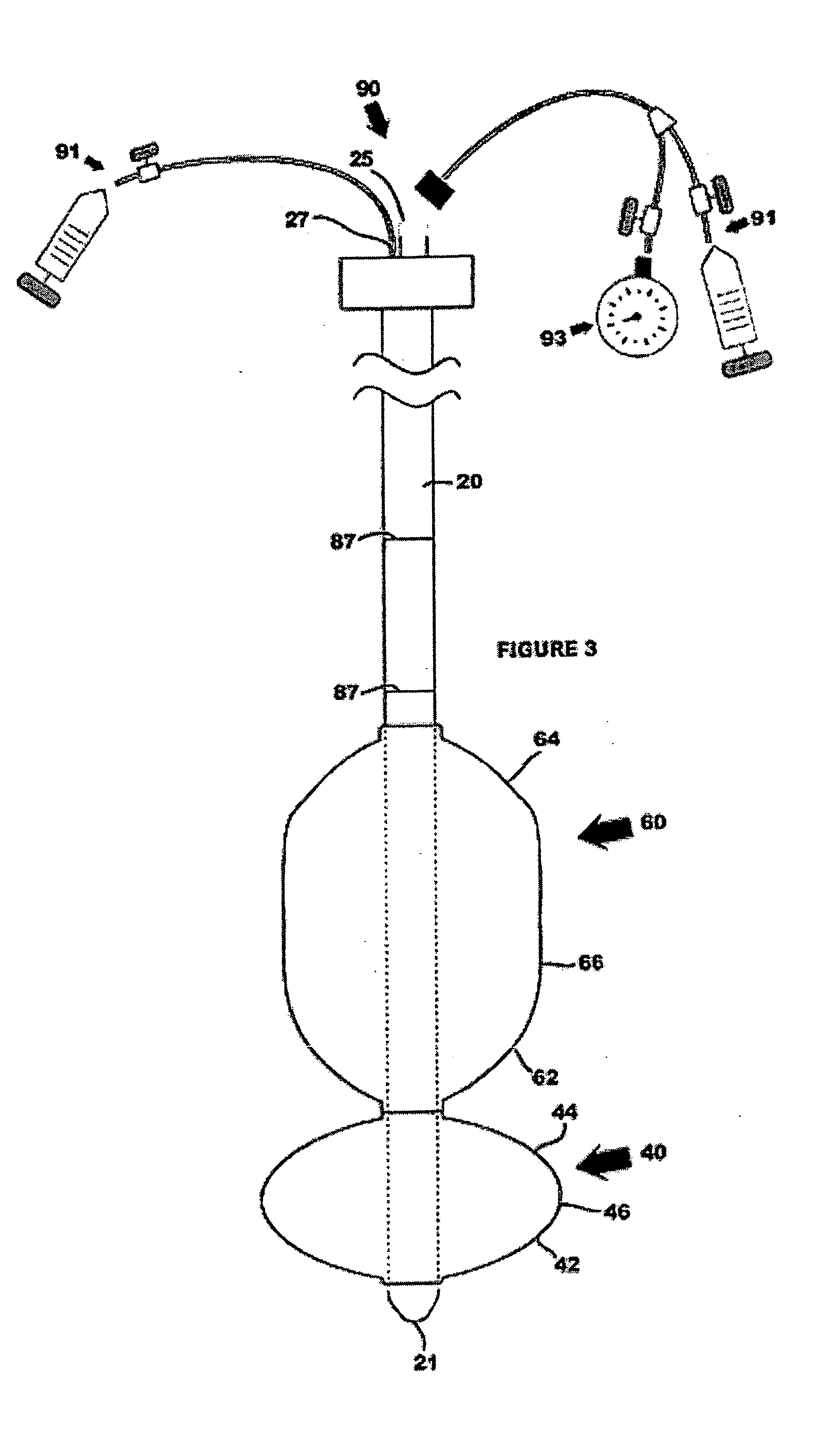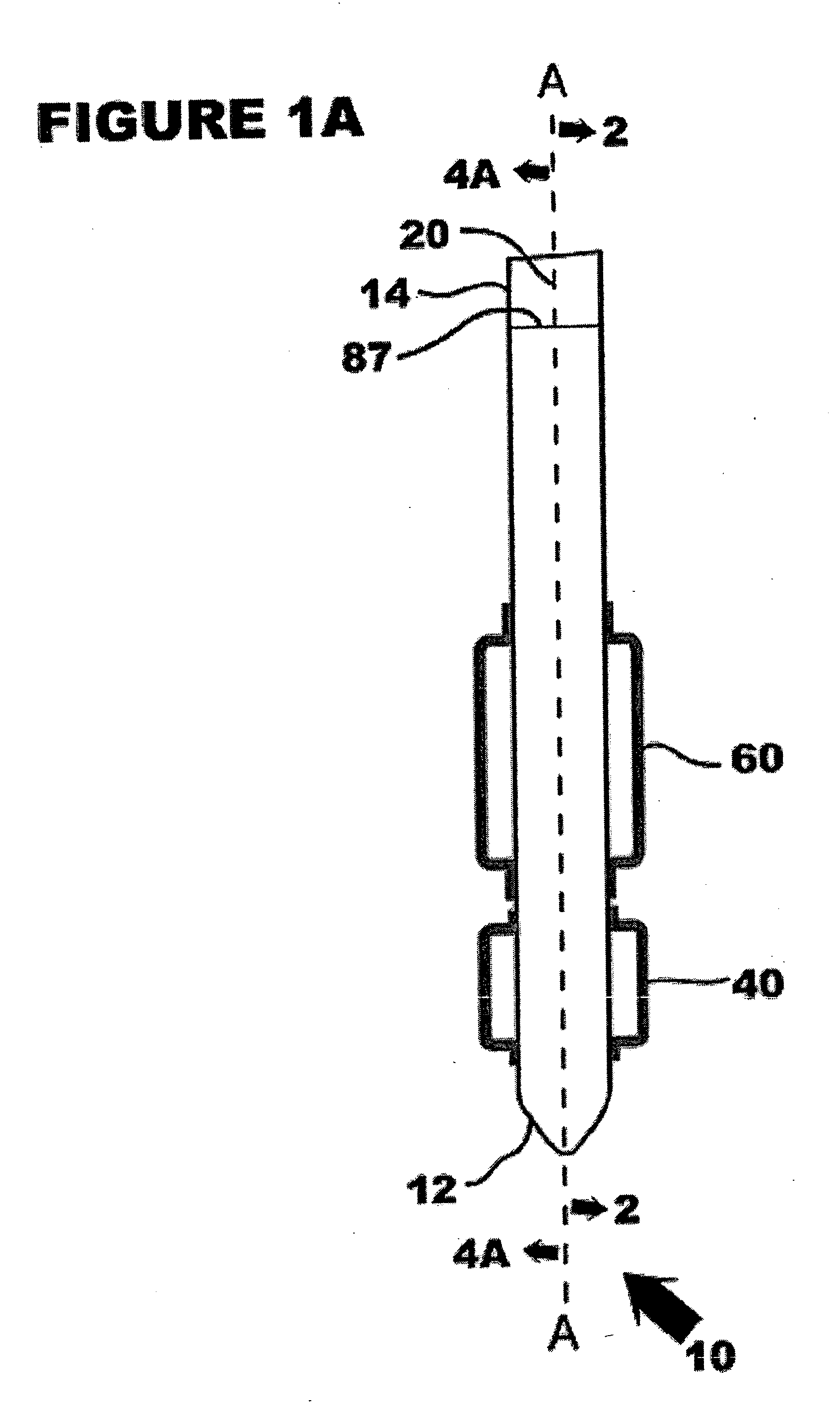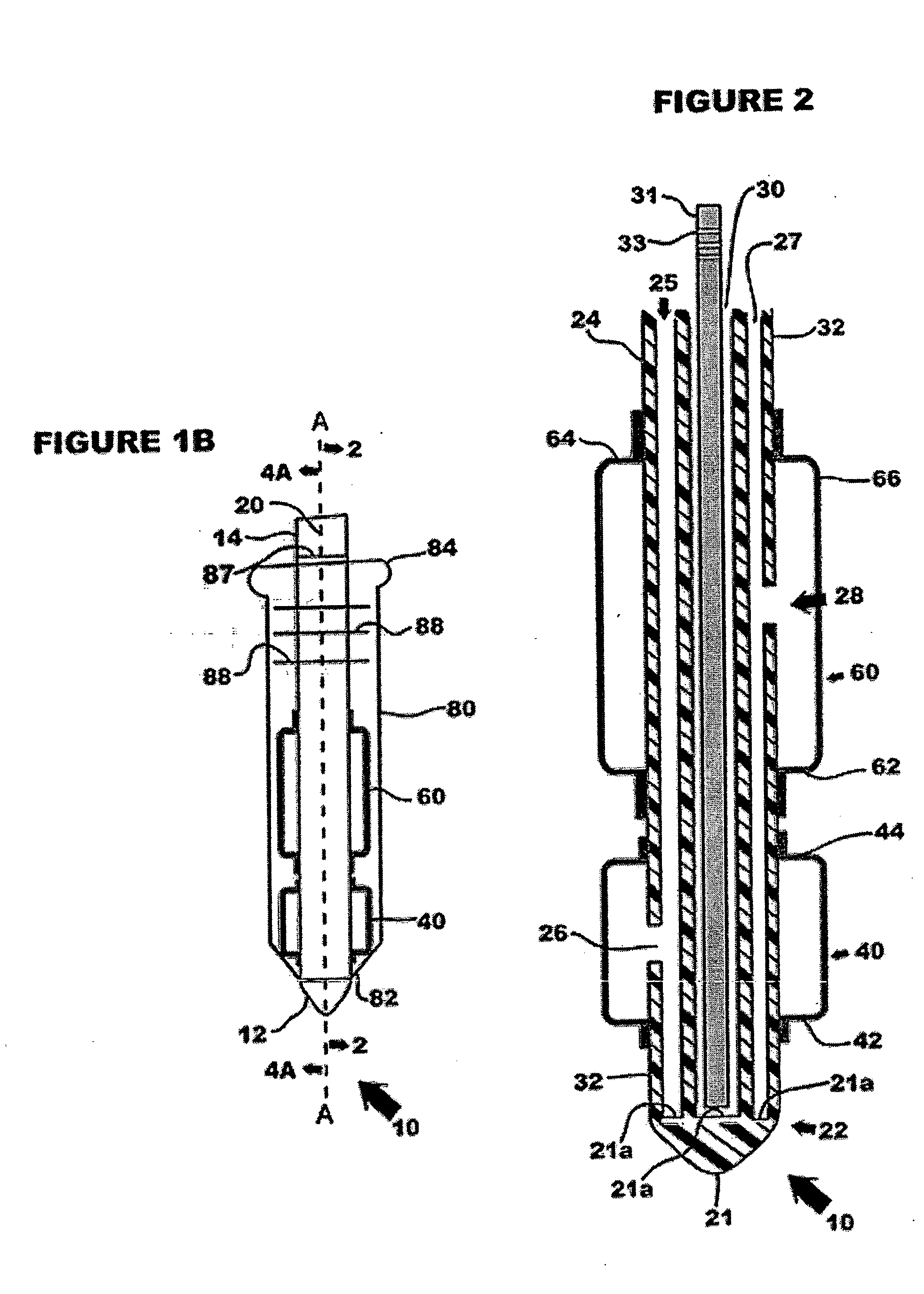Cervical canal dilator
a dilator and cervical canal technology, applied in the direction of dilators, medical devices, stents, etc., can solve the problems of over-expansion and damage to the cervix, limited gutnick structure, and limited ability of the elastic dilating member and the inflation process thereof to accurately produce a specific or controlled maximum inflation diameter,
- Summary
- Abstract
- Description
- Claims
- Application Information
AI Technical Summary
Benefits of technology
Problems solved by technology
Method used
Image
Examples
Embodiment Construction
[0033] Referring now in specific detail to the drawings in which like referenced numerals identify similar or identical elements throughout the several views, and initially to FIG. 1A, a novel cervical canal dilator assembly 10 is shown having a shaft 20, a first inflatable member 40, a second inflatable member 60 and a control system 90 (see FIG. 3). Cervical canal dilator assembly 10, hereinafter referred to as “dilator 10” has a distal end 12 and a proximal end 14 defining a longitudinal axis-A.
[0034] In FIG. 1B, the novel cervical canal dilator assembly 10 is shown having a sheath 80. Sheath 80 includes markings 88 for correlating the position of the first inflatable member relative to the proximal end of the sheath. Shaft 20 includes markings 87 for correlating the position of sheath 80 relative to the inflatable members. Dilator 10 is adapted for use by a physician and is configured as a readily useable disposable device having a reduced cross-sectional dimension of less than...
PUM
 Login to View More
Login to View More Abstract
Description
Claims
Application Information
 Login to View More
Login to View More - R&D
- Intellectual Property
- Life Sciences
- Materials
- Tech Scout
- Unparalleled Data Quality
- Higher Quality Content
- 60% Fewer Hallucinations
Browse by: Latest US Patents, China's latest patents, Technical Efficacy Thesaurus, Application Domain, Technology Topic, Popular Technical Reports.
© 2025 PatSnap. All rights reserved.Legal|Privacy policy|Modern Slavery Act Transparency Statement|Sitemap|About US| Contact US: help@patsnap.com



